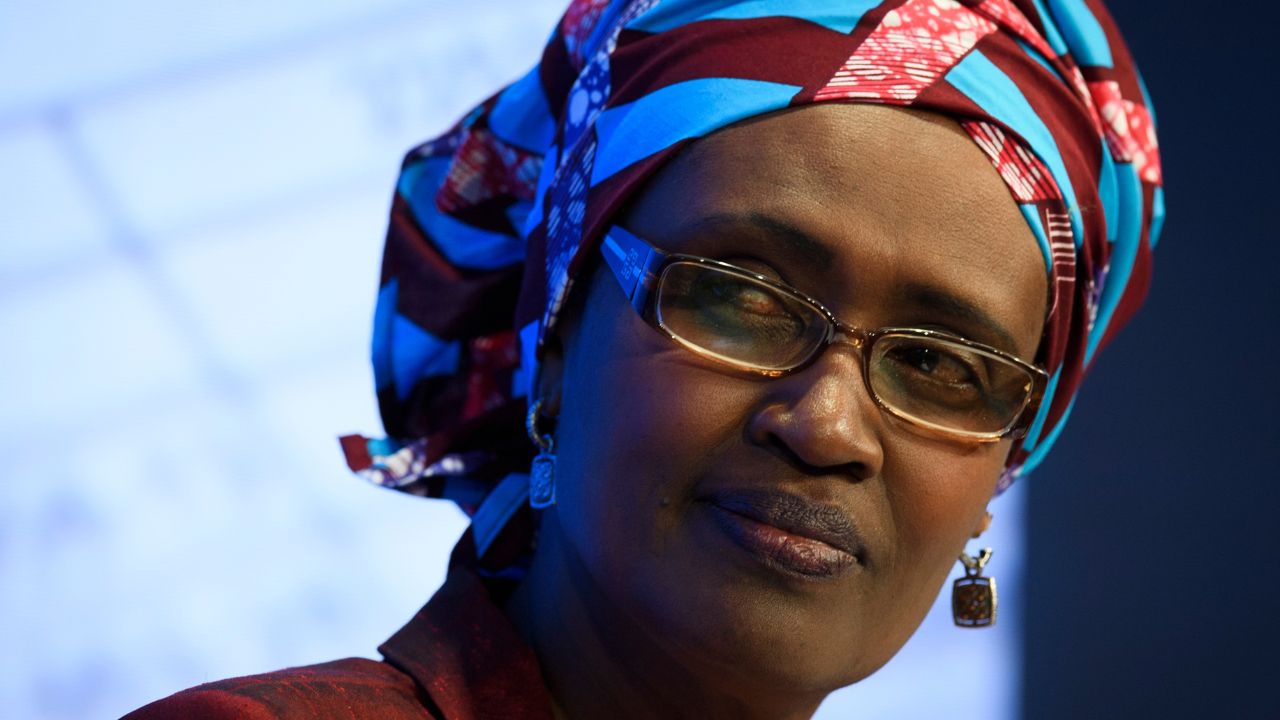Winnie Byanyima, Executive Director of Oxfam International, attends the 47th annual meeting of the World Economic Forum, WEF, in Davos, Switzerland, Thursday, Jan. 19, 2017. (AP File)

- UNAIDS warns HIV infections could surge if U.S. cuts AIDS funding, risking millions of deaths and worsening the epidemic.
- U.S. funding freeze already led to mass layoffs of HIV workers, threatening healthcare efforts in African nations.
- UNAIDS urges U.S. to reconsider, highlighting a new HIV prevention shot that could help end the disease globally.
Share
|
Getting your Trinity Audio player ready...
|
LONDON — The head of the U.N. AIDS agency said Monday the number of new HIV infections could jump more than six times by 2029 if American support of the biggest AIDS program is dropped, warning that millions of people could die and more resistant strains of the disease could emerge.
In an interview with The Associated Press, UNAIDS Executive Director Winnie Byanyima said HIV infections have been falling in recent years, with just 1.3 million new cases recorded in 2023, a 60% decline since the virus peaked in 1995.
But since President Donald Trump’s announcement the U.S. would freeze all foreign assistance for 90 days, Byanyima said officials estimate that by 2029, there could be 8.7 million people newly infected with HIV, a tenfold jump in AIDS-related deaths — to 6.3 million — and an additional 3.4 million children made orphans.
“We will see a surge in this disease,” Byanyima said, speaking from Uganda. “This will cost lives if the American government doesn’t change its mind and maintain its leadership,” she said, adding that it was not her place to criticize any government’s policy.
Byanyima pleaded with the Trump administration not to abruptly cut off funding, which she said has resulted in “panic, fear and confusion” in many of the African countries hardest hit by AIDS.
550 HIV Workers Laid Off
In one Kenyan county, she said 550 HIV workers were immediately laid off, while thousands of others in Ethiopia were terminated, leaving health officials unable to track the epidemic.
She noted that the loss of U.S. funding to HIV programs in some countries was catastrophic, with external funding, mostly from the U.S., accounting for about 90% of their programs. Nearly $400 million goes to countries like Uganda, Mozambique and Tanzania, she said.
“We can work with (the Americans) on how to decrease their contribution if they wish to decrease it,” she said. Byanyima described the American withdrawal from global HIV efforts as the second biggest crisis the field has ever faced — after the years-long delay it took for poor countries to get the lifesaving antiretrovirals long available in rich countries.
Byanyima also said the loss of American support in efforts to combat HIV was coming at another critical time, with the arrival of what she called “a magical prevention tool” known as lenacapavir, a twice-yearly shot that was shown to offer complete protection against HIV in women, and which worked nearly as well as for men.
Widespread use of that shot, in addition to other interventions to stop HIV, could help end the disease as a public health problem in the next five years, Byanyima said.
She also noted that lenacapavir, sold as Sunlenca, was developed by the American company Gilead.
International aid, Byanyima said, “helped an American company to innovate, to come up with something that will pay them millions and millions, but at the same time prevent new infections in the rest of the world.” The freeze in American funding, she said, didn’t make economic sense.
“We appeal to the U.S. government to review this, to understand that this is mutually beneficial,” she said, noting that foreign assistance makes up less than 1% of the overall U.S. budget. “Why would you need to be so disruptive for that 1%?”
No One Stepped up to Support
Byanyima said that so far, no other countries or donors have stepped up to fill the void that will be left by the loss of American aid, but that she plans to visit numerous European capitals to speak with global leaders.
“People are going to die because lifesaving tools have been taken away from them,” she said. “I have not yet heard of any European country committing to step in, but I know they are listening and trying to see where they can come in because they care about rights, about humanity.”




















